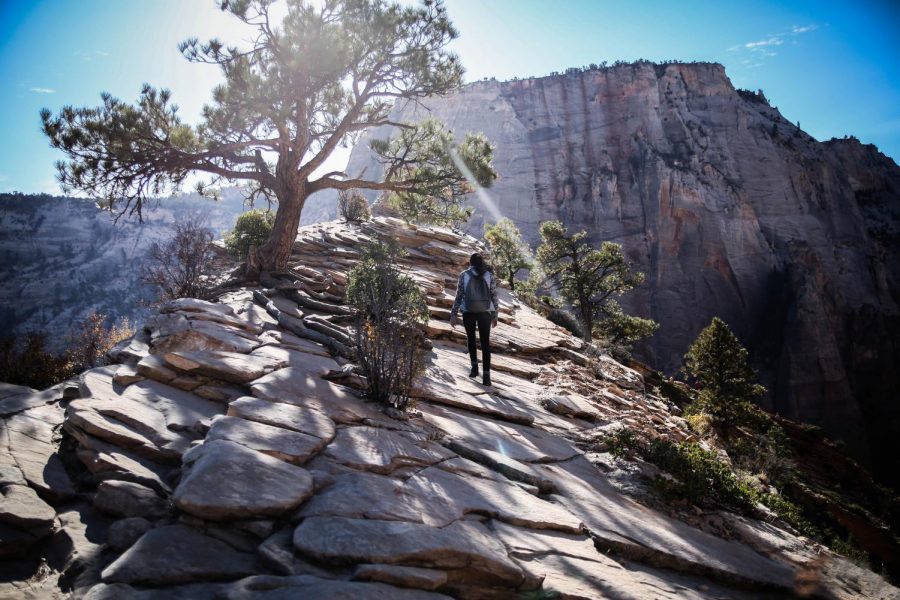Shadley: Protect Our Public Lands and Create Rural Prosperity
March 9, 2021
As someone who grew up surrounded by pavement in Los Angeles, one of the biggest drivers bringing me to Utah was the breathtaking, untouched landscapes of this beautiful state. Looking up at the massive rock walls that are emblematic of Zion or Capitol Reef, I find myself simultaneously aware of my insignificance and feeling like I’m a part of something bigger. Those moments serve as valuable reminders of our humanity and our role as stewards of this planet.
However, our federal government has repeatedly undervalued the areas that produce such moments of reflection. As a result, rural communities, like Utah and many of our counties, are placed in the unenviable position of having to decide between protecting their lands and natural resources or sacrificing them to fund necessary programs. Rural Utahns shouldn’t have to make those decisions, especially when there’s a viable alternative.
Since 1976, the United States Department of the Interior has compensated local governments for their inability to collect taxes on federally owned property. The Payments in Lieu of Taxes (PILT) program serves as a way for rural, low-population communities to be able to afford schools, firefighters, libraries, etc. without having to charge residents egregiously high property taxes.
With nearly two-thirds of Utah’s land federally owned, and therefore non-taxable, many counties and municipalities are dependent on the PILT program to remain functional. At the current payment level, our rural communities struggle to adequately fund education, provide access to high-speed internet and generally can’t provide their citizens with all the resources they deserve. While there is currently a bill in the Utah State Legislature that would restructure the way that PILT payments are collected and distributed, the focus on this issue for Utah’s state leaders should be to lobby the federal government to increase the valuation of federal lands in our state. Luckily, they have the perfect opportunity to do so.
In the first few weeks of his presidency, President Joe Biden has indicated that combating climate change and protecting our environment will be central tenets of his administration. One of the more ambitious goals Biden has set is to protect 30% of U.S. land by 2030. This benchmark, established by the Campaign for Nature, would be an effective way for us to mitigate the effects of climate change and allow for the preservation of keystone species. With only 12% of land currently protected in the U.S., we need to act quickly if we are going to have a legitimate shot at preserving biodiversity. Utah, with 33 million acres of federally owned land, would be one of the most beneficial areas to focus on, preserving a large swath of land quickly.
State leaders, like Gov. Spencer Cox, should seek to work with the Biden administration to provide greater protections on public lands in exchange for larger PILT payments. In 2018, former Utah legislator Ken Ivory sponsored a bill to re-assess the value of Utah’s public lands. He found that in Washington County, the taxable value of the 3 million acres of public land was 30 to 100 times more than the $3.1 million they receive from the PILT program. While $300 million for Washington County may not be on the table, even $15 million, which would only be five dollars per-acre, would increase the county’s budget by 10%. A deal providing rural communities with proper funding would increase the quality of life for many Utahns, protect our beautiful landscapes and serve as an example of productive bipartisan negotiations between Biden and Utah’s leaders.
Providing fair compensation would also go a long way towards altering the way rural Utahns view public lands. Utah, and some of our representatives, have a history of hostility towards federally owned land. That hostility, while still horrifying and unwarranted, starts to make sense when the amount of federally owned land in an area directly correlates to a lack of opportunity. These under-funded rural communities start to resent that they are limited in the routes they can pursue to improve the livelihood of their people. Instead, properly compensating those Utahns with a larger PILT program would actually turn the culture into one where protected public lands provide more value to the community than new oil and gas drilling. For once, rural Utahns would be able to have the quality of life they deserve without having to sacrifice their land.








